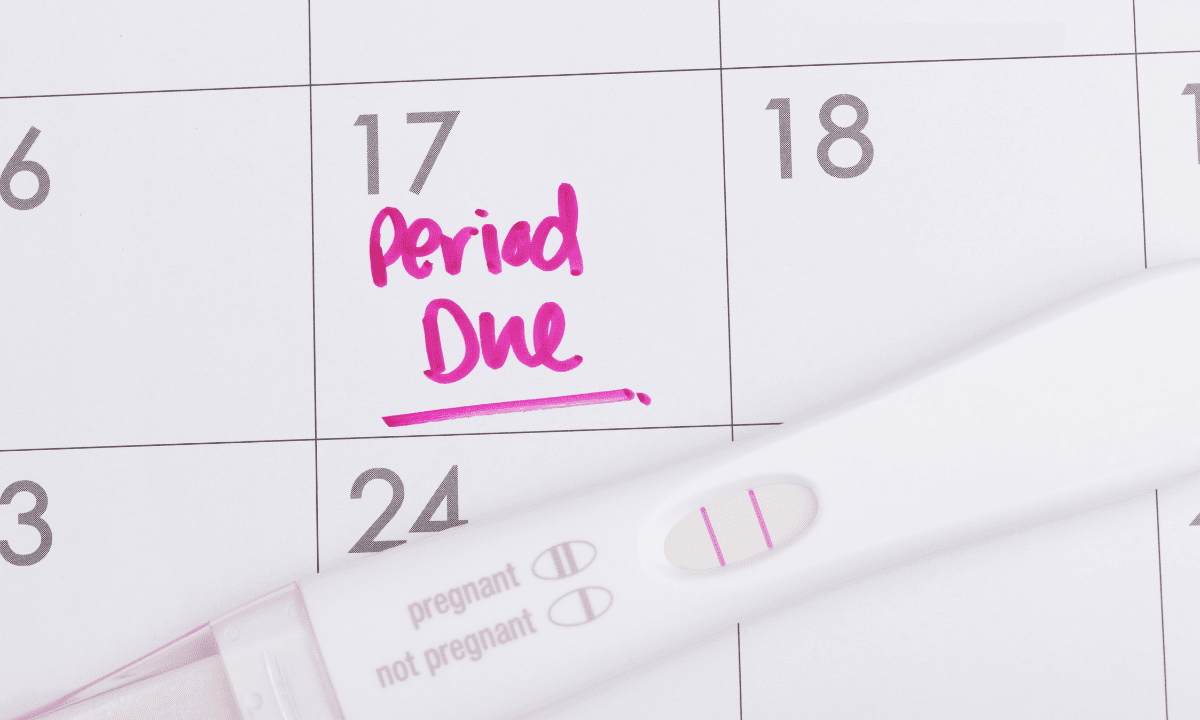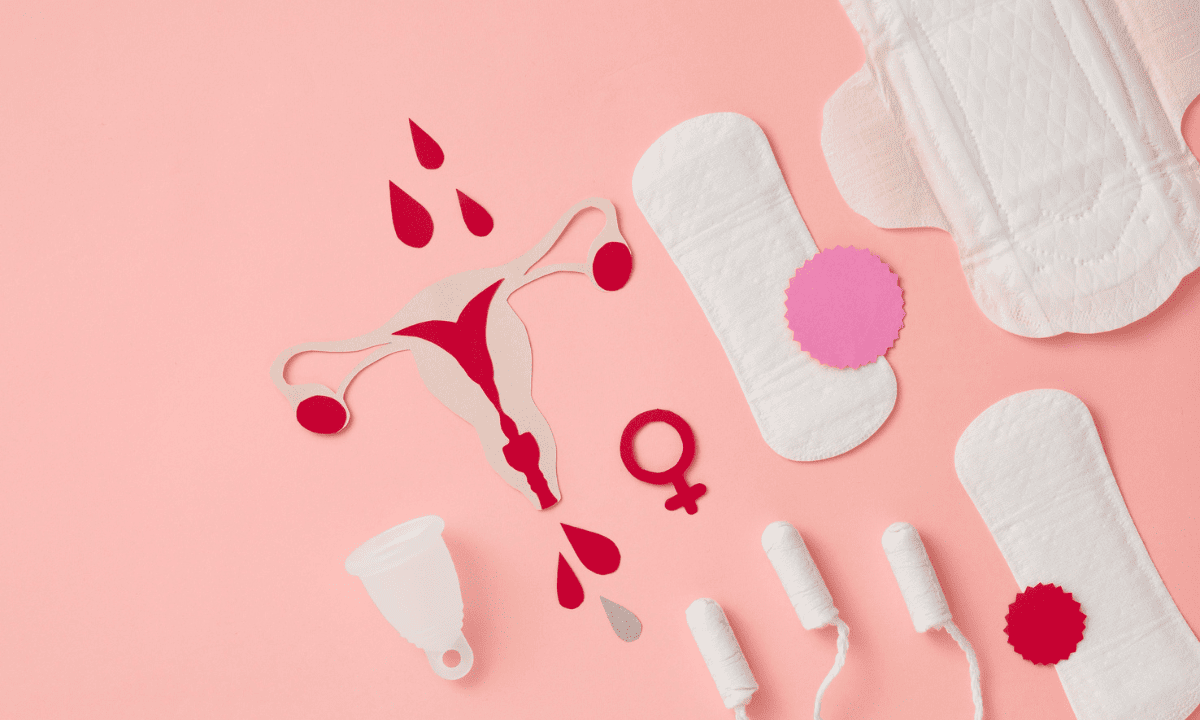Spotting or bleeding after an IUI can be confusing—especially when you’re hoping for a positive result. Many people wonder, “Can I still be pregnant even if I got my period after IUI?” The truth is, bleeding doesn’t always mean your IUI wasn’t successful.
Understanding what post-IUI bleeding really means and how to tell the difference between a period and possible early pregnancy signs can help you manage expectations and stay calm during this emotional waiting period.
What is IUI?
In natural conception, sperm must travel a long way from the vagina, through the cervix, into the uterus, and then up the fallopian tubes to reach the egg. Many sperm do not make it that far.
Intrauterine insemination (IUI) is a fertility treatment in which sperm is placed directly into your uterus. This shortens the sperm’s journey, giving healthy, motile sperm a head start and improving the chances that fertilisation will occur without involving more invasive fertility treatments such as in vitro fertilisation (IVF).
Can you get your period and still be pregnant after IUI?

Spotting or light bleeding after an IUI cycle is quite common—but it can also be confusing. Many people worry that any bleeding means the cycle didn’t work, but that’s not always the case.
Once you’re pregnant, you won’t have a true period. A period occurs when the uterine lining—which builds up each month to prepare for pregnancy—breaks down because no egg has been fertilised. When conception does occur, hormones from the fertilised egg signal your body to keep the lining intact, allowing the pregnancy to grow.
So while light bleeding after IUI can happen, it doesn’t always mean the treatment has failed. In some cases, it could even be a sign of implantation, which is when the embryo attaches to the uterus.
If you have any concerns or want personalised guidance, schedule an appointment with Thomson Medical today to speak with a fertility specialist
Reasons for bleeding after IUI despite pregnancy
Implantation bleeding
Implantation bleeding occurs when a fertilised egg attaches to the uterine lining. It usually occurs six to twelve days after ovulation, which is roughly the time when your period would normally begin.
Signs of implantation bleeding include:
Light spotting instead of a full period
Colour may be pink, brown, or rusty
Lasts a few hours to a few days
Mild cramps or twinges in the lower abdomen
Not everyone experiences implantation bleeding after IUI. In fact, some people may not notice any spotting at all. When it does occur, however, it often indicates that the embryo has successfully attached to the lining of the uterus, meaning the pregnancy has likely begun.
Breakthrough bleeding
Hormonal changes after IUI can also cause breakthrough bleeding. This can occur even if you are not pregnant and may happen around the same time as implantation bleeding.
Typical signs include:
Occurring ten to fourteen days after IUI
Light pink or brown spots
Lasting a few hours to a few days
Breakthrough bleeding is usually harmless. Keeping track of the flow and colour can help you distinguish it from heavy bleeding, which might indicate a more complicated problem, like a hormonal imbalance, infection, or, in some cases, an early miscarriage.
Hormone support
After an IUI, some people take progesterone or oestrogen to support the uterine lining. These hormones can sometimes cause light spotting that looks like a period.
The spotting is not a true period or a sign that the lining is shedding. It is simply a side effect of the medication used to support implantation and early pregnancy.
Early pregnancy bleeding
Even in early pregnancy, light spotting is common. Your body is adjusting to rising hormone levels, which can cause mild cramping or pink or brown spotting. This is usually not a cause for concern.
Our fertility specialists
Loading...
Difference between a period and pregnancy bleeding

Bleeding can happen for different reasons, and it’s not always easy to tell if it’s your period or something related to early pregnancy. Here’s a table of the main differences between the two:
Features | Period (menstrual bleeding) | Implantation bleeding |
Timing | Occurs regularly, usually every 21 to 35 days | Occurs around the time of expected menstruation, 10 to 14 days after conception |
Intensity and flow | Starts with light flow, then becomes heavier, then gradually lightens again | Light spotting or very light flow |
Clots | May have blood clots | No blood clots |
Colours | Typically red, dark red, or brown. | Often pinkish-brown or rust-coloured |
Duration | Usually lasts for 2 to 7 days. | Lasts for hours or days |
Symptoms | Cramping, breast tenderness, mood changes and fatigue | May have mild cramping |
What to do if you are bleeding
It’s not always easy to tell what bleeding means after an IUI. Whether it’s your period, implantation, or something else, understanding the possible causes and paying attention to your symptoms can help you respond appropriately and know when to seek medical advice.
Track your symptoms:
Note the colour, flow, duration, and any cramps you may experience.
Manage stress:
Stress can affect hormones and make symptoms feel stronger. Relaxation techniques, meditation, or gentle exercise may help.
See a doctor if needed:
Heavy, bright red bleeding, clots, tissue, or severe pain should be evaluated immediately.
Continue hormone support:
Unless your doctor advises otherwise, continue taking prescribed hormones to support the uterine lining.
If you’re unsure about your bleeding or need guidance, schedule an appointment with Thomson Medical to speak with a fertility specialist. They can help you understand what’s happening and ensure you’re taking the right steps to support your cycle.
FAQ
Is bleeding always a negative sign after IUI?
Bleeding is not always a negative sign after IUI. Implantation bleeding is a sign of successful IUI. Hormonal fluctuation also causes spotting.
However, if the bleeding is heavy, bright red and accompanied by abdominal pain, it might be serious and require immediate medical attention.
Why did my period come early after IUI?
An early period after IUI may be due to several factors:
The timing of the IUI procedure relative to ovulation
Hormonal fluctuations from fertility medications
Individual variations in menstrual cycle length
It is important to consult your fertility specialist for proper diagnosis and guidance.
Does stress make bleeding worse?
Stress will not stop implantation, but it can affect hormones and make symptoms feel stronger. Relaxation techniques can help ease discomfort.
Can progesterone cause false period-like bleeding?
Yes, progesterone supplements can cause false period-like bleeding. It is also known as breakthrough bleeding.
Progesterone is important to maintain the uterine lining for growing embryos. Sometimes, fluctuation in the level of progesterone may cause bleeding to be irregular and light bleeding.
How can you tell implantation bleeding from early miscarriage?
Implantation bleeding is usually light, short, and pink or brown. Miscarriage bleeding is heavier and bright red, may include clots or tissue, and is often painful. If you are unsure, contact your doctor immediately.
When should I test after IUI if I have spotting?
It’s important to wait at least 14 days after IUI before taking a home pregnancy test. Testing too early may give a false negative because hCG (human chorionic gonadotropin) levels might not be high enough to detect pregnancy.
If your test is negative after 14 days but you still suspect pregnancy, wait a few more days and test again. Blood tests at a fertility clinic can detect hCG earlier and are more accurate than home tests.
The information provided is intended for general guidance only and should not be considered medical advice. For personalised recommendations and tailored advice based on your unique situations, please consult a specialist at Thomson Medical. Request an appointment with Thomson Medical today.
